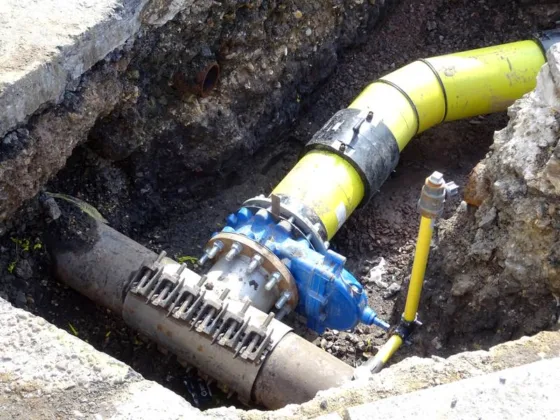Many people consider gas to be a superior option to electric power for home appliances.
After all, it’s more eco-friendly, affordable, and capable of quickly reaching high temperatures for cooking. Using gas appliances can shave an average of 30% off your utility bill.

However, implementing gas power in a home that is set up for electric power can be expensive due to gas line rerouting and appliance installation.
Then again, the same applies to convert to a different power source. You’ll have to pay for the new installation and the capping of your gas line.
As for safety, you’ll need to monitor gas levels in your home and ensure there’s proper ventilation to prevent carbon monoxide poisoning.
Propane gas is less flammable and more affordable than normal gas, as explained on Discount Propane Inc who have safety pages on their website if you’re concerned. Electric power is generally safe provided regular maintenance is performed.
Gas vs Electric Home Appliances Compared
If you’re torn as to which power source is best for you, let’s take a look at how different gas and electric home appliances compare.
Read Also:
- Maintaining Your Central Air Conditioner for Optimum Performance and Energy Savings
- Electric Fireplace vs. Infrared Heater – Which is Better for Your Home
- Everything You Need to Know About Vampire Energy [Infographic]
- Electrical Repairs – Signs That You Need to Appoint an Electrician
- Turning Pipelines into Power Generators – 10 Things to Know
- Indoor Electric Grilling Meets Rustic Kitchen Design
- Easy Tips on How to Save Energy at Home
Dryers
Unlike washing machines, which are no longer available in gas form, dryers with gas power sources can still be bought today. Gas dryers work faster than electric ones while also being more energy-efficient.
This is somewhat offset by their higher upfront cost, but your long-term savings still make gas a better option.
Fireplace
Fireplaces are particularly challenging when it comes to replacing power sources. But if you’re willing to take the plunge, here’s what you need to know:
In this case, gas fireplaces will actually be less energy efficient as they have to constantly fuel an open flame.
Electric fireplaces radiate ambient heat instead, which is more efficient and safer for families. If you’re adamant about having a real flame, go for gas. If you prefer to save some money, an electric fireplace is your best bet.
Stove and Oven
Gas stovetops are favored by chefs for their ability to heat up food faster and more evenly. There are also fewer moving parts and maintenance is easy to perform, which is why gas stoves and ovens tend to last longer.
That said, bakers should look into electric stoves and ovens instead, as they have much better temperature adjustment.
Grills
Gas grills can be connected directly to a gas line or hooked up to a small propane tank. One tank can last months with regular usage and there’s little to no maintenance required. You’ll be able to cook up any type of meat much faster on a gas grill than an electric one, and it will have a more campfire-style flavor. You can read a review about gas grills under 300 before buying a gas grill.
Electric grills provide better temperature control and are usually much smaller, making them a great option for those who want something portable.
They’re also a little more convenient to set up but will take longer to cook anything. For those who prefer the most authentic of flavors, consider a charcoal or mesquite grill instead.
Conclusion
As you can see, the gas vs electric argument largely depends on the appliance in question. Consider your personal circumstances and it should be easier to make an informed decision.











1 comment
Wonderfully differentiate between gas vs electric home appliances compared.